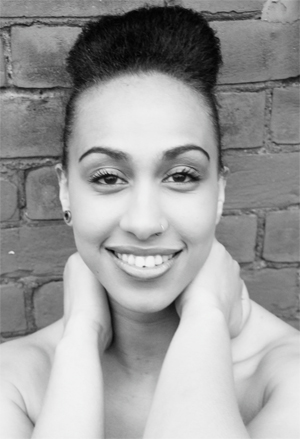 Robia has been performing, choreographing and teaching in London for over 10 years. She has worked with companies and choreographers such as Avant Garde Dance Company, A&R Dance, Definitives and Ivan Blackstock, as well as creating work as a solo artist.
Robia has been performing, choreographing and teaching in London for over 10 years. She has worked with companies and choreographers such as Avant Garde Dance Company, A&R Dance, Definitives and Ivan Blackstock, as well as creating work as a solo artist.
She has taught masterclasses across the UK and Europe sharing her vast knowledge with students from across the globe. She believes dance is her life and life is her dance; this is apparent in all of her work and throughout her classes.
Where did you train and what that experience like?
I have always wanted to be involved in dance. Since I came on to Earth I was moving and grooving with my mini legs and arms! I started training properly when I was seven years old.
I started dancing with a street dance group, for five years. I then moved to another street group for three years and then trained at the Brit School from the age of fifteen until I was nineteen. It was a great experience to train in more than one style and I embraced all of it! I love learning new things and delving deeper in to my passion.
Did you start performing young?
I started performing when I was seven (minus the shows I would put on in the front room for my mum!)
What is a typical day like for you?
A typical day for me always consists of dance. If I’m not rehearsing for a performance or a video, I am either taking class, choreographing or training on my freestyle. I try not to make my days too typical as I love working on new things and developing my dance vocabulary. Unless I am rehearsing for a production, then getting into a routine for a period of time is an uplifting experience.
What’s the best part of dance/performing for you?
Honestly, there are so many things I love from doing what I do. Not just the dancing and performing but the understanding and knowledge. I love building conversation about a concept of movement or choreography and the meaning to why I am moving. I love the process of creating and rehearsing and doing it over again until it makes sense, but it also has to feel right. I love getting things wrong so I can improve. I love hearing good and bad feedback. The performing part is a bonus for me.
Dance is such a broad art in itself, it has many layers and I find the layers the best part/parts!
What are you currently working on?
Currently I am working on ‘A Harlem Dream’ at the Young Vic Theatre. I have the lead female role ‘Constance’. I am also slowly building my own company but putting my main energy in to this production at the moment.
What is the rehearsal process like for A Harlem Dream – is it a collaborative process with all the dancers and creative team?
The rehearsal process so far for A Harlem Dream has been very rewarding. I have known Ivan in the dance scene since I was seven, and to work with him now I am 22 is an awesome thing. We get to contribute ideas and collaborate on movement material as well as anything we feel needs adjusting or shifting: we can put our voice across and feel comfortable enough to speak our minds. It is a big team effort but wouldn’t be anything without Ivan and Ukweli [Roach] for their direction. I feel inspired every time I leave the studio, not just by the directors but by the whole team! The show sinks in more and more each rehearsal and I am very happy and grateful for my role and to be around such like-minded beings.
What is the hardest element of the rehearsal process?
The hardest element of the rehearsal process is putting on a show within the limited time that we have. I feel it is more a challenge for the team as a whole to really pull this off with such an in-depth storyline. We really have to understand our characters and portray that through our movement and that can also be a hard task. I have faith in all of us and believe it will only get better through time.
Do you have any advice for aspiring performers?
My main advice is to be happy doing whatever it is that you want to do. I don’t think it is healthy to just dance for the sake of dance. Find where you want to be and bask in it. Try not to get wound up in the things you don’t want to do. Everything is a choice – I made the choice to be happy and everyone is entitled to happiness.
What are you most looking forward to about the performances?
I’m most looking forward to dancing with everyone that has inspired me through the time and being a part of something that really pushes the boundaries! I can’t wait!

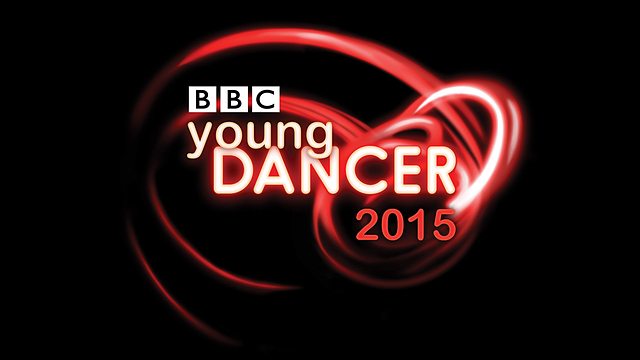 BBC Young Dancer 2015 is a new award for young people that showcases the very best of young British dance talent. Young dancers will enter in one of four categories: ballet, contemporary, hip hop and South Asian dance. The competition will culminate in a grand finale at Sadler’s Wells, London, when the best dancers in each category will compete for the competition title.
BBC Young Dancer 2015 is a new award for young people that showcases the very best of young British dance talent. Young dancers will enter in one of four categories: ballet, contemporary, hip hop and South Asian dance. The competition will culminate in a grand finale at Sadler’s Wells, London, when the best dancers in each category will compete for the competition title.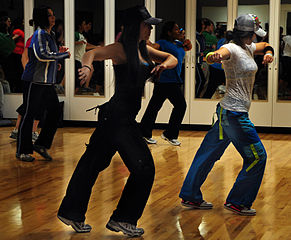 Regardless of your favourite dance discipline, it is important to maintain your practice in other dance forms to both complement and balance your training. Whilst one discipline may be concentrated on, it is beneficial both physically and mentally to take part in other dance forms other than your main interest.
Regardless of your favourite dance discipline, it is important to maintain your practice in other dance forms to both complement and balance your training. Whilst one discipline may be concentrated on, it is beneficial both physically and mentally to take part in other dance forms other than your main interest.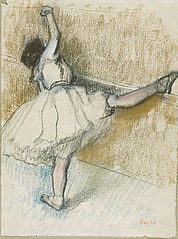
 While dance is a physically and mentally demanding subject, many people are still of the opinion that dance cannot be an academic subject and should not be included in a school’s curriculum. Dance as a school subject still faces negative perceptions despite numerous counter-arguments, and can be misunderstood as a ‘soft option’.
While dance is a physically and mentally demanding subject, many people are still of the opinion that dance cannot be an academic subject and should not be included in a school’s curriculum. Dance as a school subject still faces negative perceptions despite numerous counter-arguments, and can be misunderstood as a ‘soft option’. Many dance artists working in the industry would argue that there are still gender issues for them. Some audiences still retain the thought that dance equates to ballet for girls, full of prejudice and stereotypes. This is despite the leaps that have been made regarding gender equality in dance, leaving the uneducated public. To them, dance requires little to no training or commitment, and could not be a legitimate career.
Many dance artists working in the industry would argue that there are still gender issues for them. Some audiences still retain the thought that dance equates to ballet for girls, full of prejudice and stereotypes. This is despite the leaps that have been made regarding gender equality in dance, leaving the uneducated public. To them, dance requires little to no training or commitment, and could not be a legitimate career.
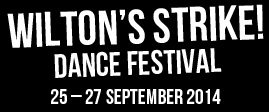 Wilton’s Strike!, a new dance platform, is offering emerging dancers and choreographers the opportunity to develop a piece of work with Wilton’s Music Hall and to perform on its historic stage. Wilton’s is the world’s oldest surviving Grand Music Hall and London’s best kept secret, so this opportunity to work within the building is an incredible opportunity.
Wilton’s Strike!, a new dance platform, is offering emerging dancers and choreographers the opportunity to develop a piece of work with Wilton’s Music Hall and to perform on its historic stage. Wilton’s is the world’s oldest surviving Grand Music Hall and London’s best kept secret, so this opportunity to work within the building is an incredible opportunity. A recent survey has revealed that 63% of UK residents consider a degree in Dance and the Performing Arts to be equally as valuable as any other theoretical subject, with a further 56% of parents stating they would take pride in their children pursuing a career in The Arts.
A recent survey has revealed that 63% of UK residents consider a degree in Dance and the Performing Arts to be equally as valuable as any other theoretical subject, with a further 56% of parents stating they would take pride in their children pursuing a career in The Arts. Teachers are an integral part of a dancer’s development. Not only do they aim to build up the dancer’s talent and ability but they also act as a mentor and inspiration to the student.
Teachers are an integral part of a dancer’s development. Not only do they aim to build up the dancer’s talent and ability but they also act as a mentor and inspiration to the student.